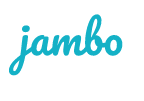
A structured approach to stakeholder issue management helps you capture, prioritize, and resolve stakeholders' concerns and perspectives as they arise. This ensures stakeholders feel heard and prevents minor problems from escalating into risks that affect your project and organization.
Being accountable to your stakeholders by addressing their issues is crucial during a project's planning, pre-development, and operational stages. To ensure you can stay updated and manage all concerns throughout your project's lifecycle, it's a good idea to use specialized software like Stakeholder Relationship Management (SRM) software to track and manage stakeholder issues.
This post will define stakeholder issue management and explain how an SRM is designed to ensure you and your team work from the same, up-to-date information and priorities. This way, you can manage project risk and never forget to address a stakeholder issue.
In this blog, we'll cover:
- What is stakeholder issue management?
- What is SRM software?
- Why is data organization key to stakeholder issue management?
- How does an SRM help manage stakeholder issues?
- How do you choose an SRM?
What is stakeholder issue management?
Stakeholder issues management is a proactive, repeatable way to spot, assess, and resolve stakeholder concerns before they become crises. Because engagement is fluid, teams often hear more than the initial consultation plan. New questions, attitudes, and risks surface over time. A good issues management approach helps organizations act early to protect reputation, meet regulatory expectations, keep projects on track, and build trust through clear, timely communication.
In practice, it means keeping a living issues register (what was raised, by whom, when, context, and status), assigning ownership, and using simple criteria to rank what matters most by impact, likelihood, urgency, and strategic fit. Teams then agree on actions and deadlines, keep people informed with a basic communications plan, and monitor progress with dashboards and periodic reports. Afterward, they review outcomes and capture lessons learned to improve the next round. In short: identify, prioritize, act, and evaluate continuously.
What is Stakeholder Relationship Management software (SRM)?
An SRM is software for managing all your stakeholder relationships and communications with stakeholders. With an SRM, you and your team have one place to log stakeholder engagement information, including issues raised, so everyone knows exactly where to find everything they need. Organized data simplifies the stakeholder relationship management process so it won't become overwhelming or unmanageable.
Learn more about SRM with our ultimate guide →
Why is data organization key to stakeholder issue management?

With all your data centralized and organized, you can better track and manage essential information about your stakeholders and engagement projects. These insights help you understand what your stakeholders care about, build relationships with them, and learn from them for better project outcomes. This is vital in effective issue management and crisis resolution because missing even one issue can send your project and relationships off the rails.
When juggling your various stakeholders and their issues, having a defined and collaborative space to hold this information will help ensure that all concerns can be easily addressed.
Some issues are time-sensitive, while others may not be addressed until later in the project. Logging this information accordingly and being able to task-manage the issue follow-up means your team doesn't have to worry about forgetting to address an issue.
Knowing an issue's materiality, its impact level vs. its priority, allows you to assess better what puts your project most at risk and communicate it to your team and management. Some systems allow you to visualize this as part of your tracking and reporting, which can be a big time-saver.
A McKinsey Report on external engagement reveals that 56% of high-performing organizations use software to map external issues that could affect the business.
Typically, your issue management process will significantly impact relationships with stakeholders and their willingness to collaborate with your organization on current and future projects.
Learn more about stakeholder engagement data management →
How does an SRM improve issues management?
Practical issues management stops small challenges from becoming major crises. By detecting issues early and acting quickly, organizations protect their reputation, stay proactive with regulators and stakeholders, and uncover new business opportunities. The following are ways a stakeholder relationship management software can improve issues management with stakeholders:
1. Makes information accessible and understandable
An SRM allows you to manage stakeholder contact information and create a stakeholder profile, giving you and your team easy access to all your communications with a stakeholder. With ideal software, any issues associated with the stakeholder would be auto-linked to their stakeholder profile, so it's easy to build a complete picture of their history of engagement (you should never have to dig through software to find stakeholder issue information!).
2. Building stakeholder relationships
One thing that frustrates stakeholders is when they meet with a company representative and say, "I told your people about this last week/month/year. Don't you talk?" Knowing of existing issues helps you prepare for any engagement with a stakeholder and builds trust because it shows that you're listening.
Addressing issues tactfully and promptly will also help ensure your stakeholders know you take their concerns seriously, increase the likelihood that they'll be willing to work with you, and help maintain or even build vital stakeholder trust.
3. Understanding any risks to help lower liability

An SRM with an issues management module ensures your stakeholder issues are front and centre and easy to track. This means your team won't lose sight of them and can collaboratively work towards addressing (and hopefully resolving) every single one.
Jambo's timeline feature hugely benefits teams that need an easy and understandable way to stay up to speed with project updates. You can also see the materiality for each issue, which identifies the issue's impact and priority at a glance. This lets you understand which poses the most significant risk to your project.
4. A history of all issues to tell the whole story
SRMs make it easy to gain an overview of all concerns, including the ability to search your data to find challenges associated with specific stakeholders or organizations in one project or across all of them.
Communication records associated with the issue are easily viewed as part of the overall profile. This information timeline is essential because, for example, if you run into a situation where there is a discrepancy over how a problem was handled, you can quickly pull all the necessary information to show the exact communication that occurred, helping to keep everyone accountable and protected.
5. Tags to keep essential data organized
Tags can help you keep track of stakeholders who have raised or might be prone to raising issues, which can help you stay on top of past, present and future concerns.
An SRM with a tags feature can help you and your team organize your stakeholder information according to specific interests, concerns, importance and emerging themes. This ability to better manage and classify your stakeholder information will enable you to report on and analyze your data more effectively.
6. Tracking emerging themes and trends
Tags are instrumental when you want to track specific stakeholders. With this capability, you can add tags to key stakeholders to identify them according to importance, concerns, interests, etc. You can also filter and search your tags to find all engagements with tagged stakeholders and run reports using tags as filters.
A custom tagging system can allow you to attribute stakeholders and engagement records with tags that make sense for your engagement or project management process to track better and identify your data trends or vital qualifiers.
7. End-to-end traceability
Traceability within an SRM is essential because it helps you understand how your information is linked (i.e. when an issue arose, what was discussed at a meeting, or what task is required before your next engagement).
Traceability is a critical SRM feature because having every communication, issue, commitment, and task auto-link together makes your job easier and helps you understand your stakeholders, their opinions, your projects' status, and where an issue or commitment first arose. It also helps create a better user experience.
Traceability isn't available with all SRMs, so review each software's information linking abilities before making buying decisions.
Learn how SRM software helps with traceability →
How do you choose an SRM?
Now that we've discussed how an SRM is instrumental in your stakeholder issues management, how do you choose the right Stakeholder Relationship Management software?
Not every SRM is designed or supported similarly, and not every SRM includes the issue management features described above. Software that works for one organization might not be the right option for another, so take the time to review, consider their implementation process, and select the best SRM for your organization.
Next steps
Book a 15-minute discovery call with a Jambo expert to thoroughly understand how an SRM can streamline your stakeholder engagement efforts.








